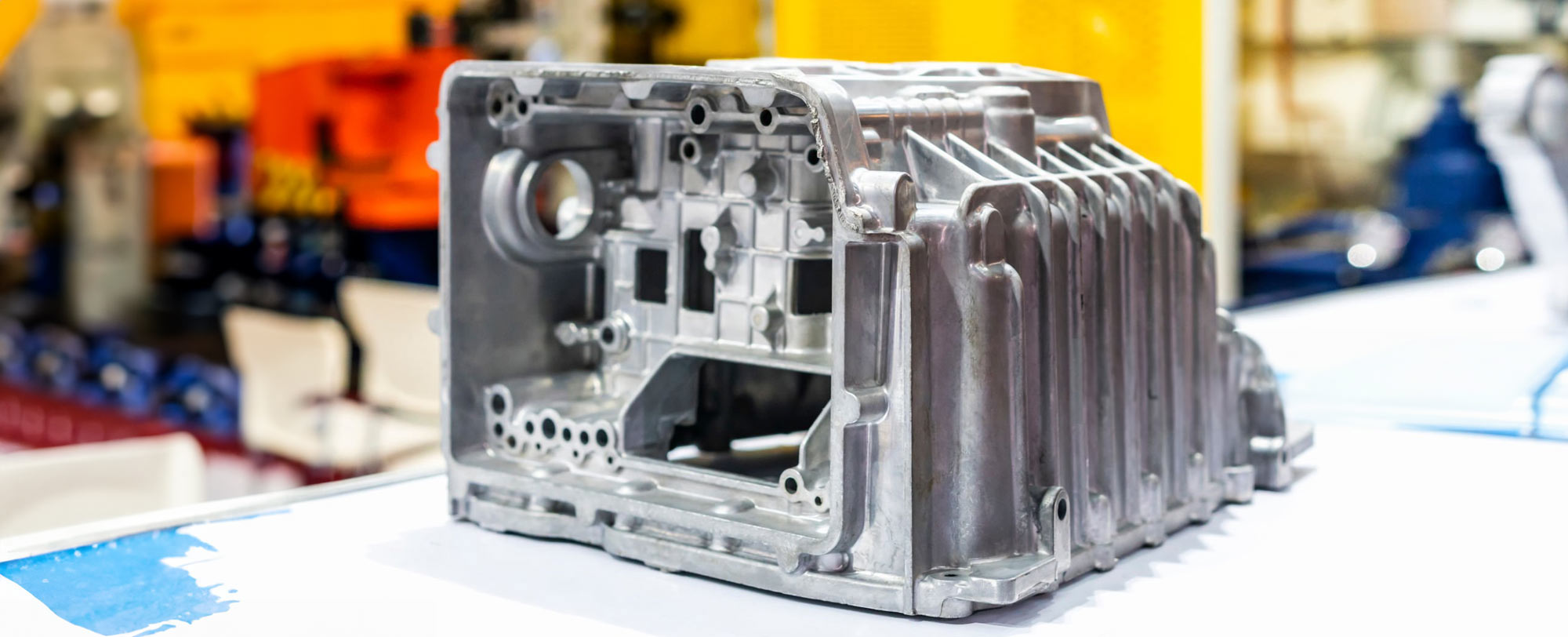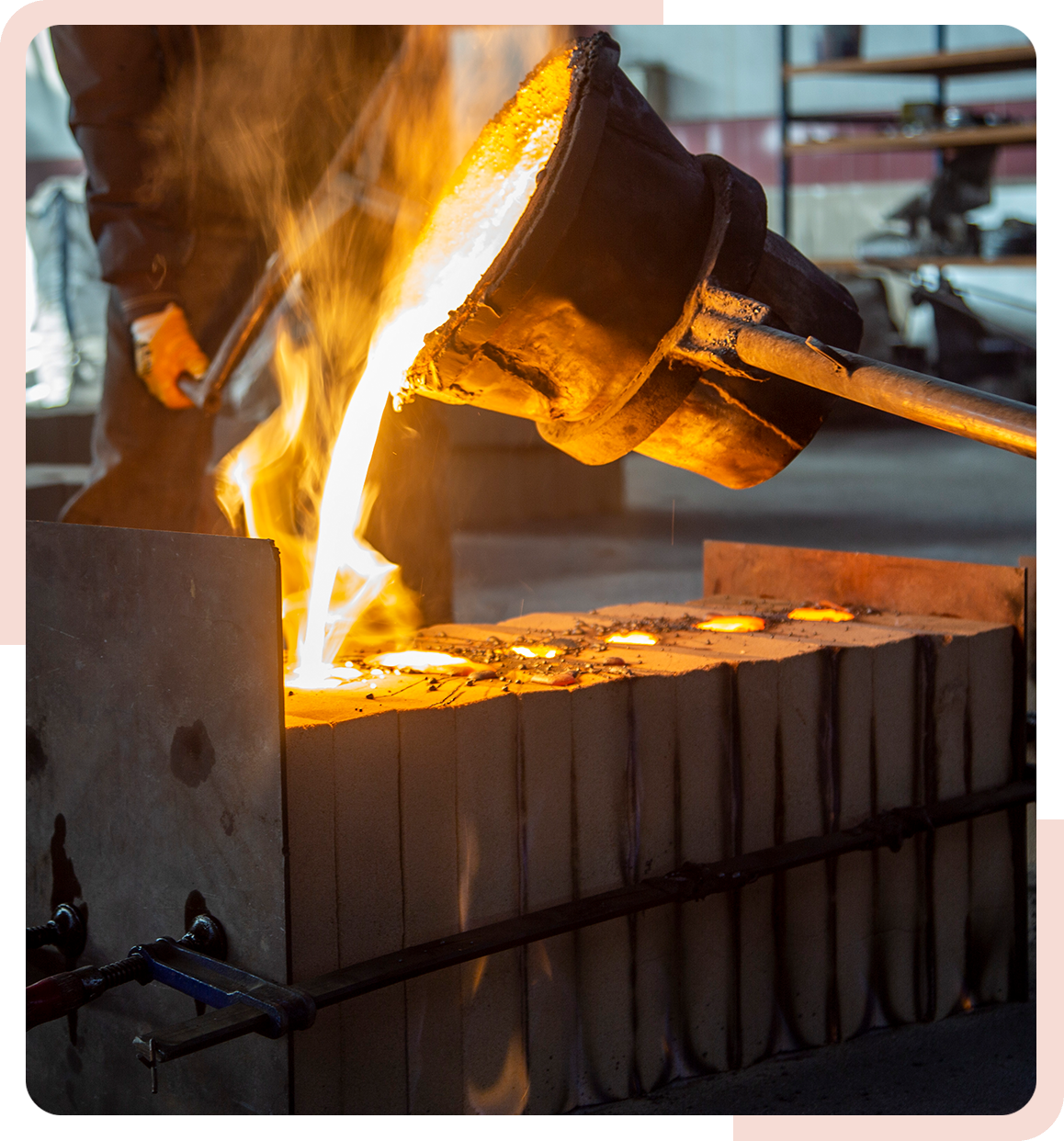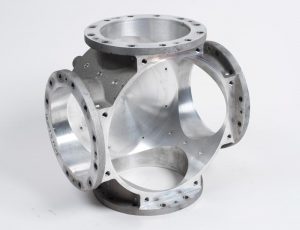Exploring the Ingenious Procedures Behind Modern Light Weight Aluminum Shop Workflow
Modern aluminum foundry procedures are undergoing substantial improvement. Automation and AI are improving manufacturing methods, boosting both performance and precision. The integration of 3D printing is enhancing mold and mildew creation, while sustainability techniques are becoming much more crucial. Each of these improvements plays a key duty in redefining the market. However, the ramifications of these modifications expand past simple manufacturing efficiency. What possibilities and challenges lie ahead for aluminum shops in this progressing landscape?
The Duty of Automation in Light Weight Aluminum Foundries

Automation adds to enhanced safety and security criteria within the factory atmosphere. By transferring hazardous jobs to equipments, human employees can concentrate on managerial duties and high quality control, lessening the risk of crashes. On top of that, information analytics originated from automated procedures supply important understandings right into operational efficiency, leading to much better decision-making and continual renovation. As the need for aluminum items expands, the fostering of automation innovations will likely expand, even more changing the landscape of aluminum shop procedures.
Improvements in Casting Technologies
Current developments in casting technologies are changing aluminum foundry procedures. Advancements such as 3D printing assimilation, advanced alloy formulas, and automated process optimization are boosting performance and product high quality. These growths are critical in fulfilling the progressing needs of the sector.
3D Printing Assimilation
Incorporating 3D printing modern technology right into light weight aluminum foundry operations has changed traditional spreading methods, enhancing both efficiency and precision. This ingenious technique enables for the quick production of complex mold and mildews and cores, significantly minimizing lead times and product waste. By making use of additive production, shops can develop elaborate geometries that were difficult or formerly challenging to achieve with standard techniques. The adaptability of 3D printing additionally enables fast layout modifications, promoting an extra agile production process. In enhancement, this combination sustains using lightweight frameworks, which is increasingly crucial in sectors such as automotive and aerospace. As light weight aluminum shops proceed to adopt 3D printing, they place themselves at the forefront of technological innovation, driving improvements in product quality and operational capacities.
Advanced Alloy Formulations
The advancement of sophisticated alloy formulas has significantly enhanced casting technologies in aluminum shop procedures. These solutions incorporate numerous aspects, such as silicon, magnesium, and copper, to boost mechanical properties and thermal resistance. By customizing the make-up of aluminum alloys, manufacturers can accomplish particular efficiency qualities that satisfy the needs of diverse applications, from automobile elements to aerospace structures. Making use of sophisticated alloys likewise adds to decreased weight and increased stamina, which are crucial aspects in modern design. Additionally, innovations in alloy growth enable much better fluidness during spreading, resulting in boosted surface coatings and decreased issues. Overall, progressed alloy formulations represent a significant jump onward, positioning light weight aluminum foundries to satisfy the evolving requirements of numerous industries successfully.
Automated Process Optimization
Developments in casting modern technologies have paved the method for computerized procedure enhancement in light weight aluminum foundry operations. By incorporating innovative software application and real-time data analytics, shops can currently streamline manufacturing processes and enhance quality control. Automated systems check variables such as cooling, stress, and temperature level rates, enabling prompt adjustments that reduce flaws and waste. In addition, artificial intelligence algorithms evaluate historic efficiency data to anticipate ideal setups, consequently raising performance and minimizing cycle times. Robotics likewise play a significant function, handling recurring tasks that improve safety and security and precision. Generally, these technologies not only drive operational performance yet likewise enable shops to satisfy the expanding demand for high-quality light weight aluminum elements in various sectors.
Smart Production and Market 4.0 Integration
The assimilation of Smart Production and Industry 4.0 within light weight aluminum factories is transforming functional efficiency. By leveraging IoT modern technologies, automation, and robotics, foundries can maximize manufacturing processes and minimize downtime. Furthermore, information analytics offers important insights that improve decision-making and drive continual renovation.
IoT in Factory Procedures
As makers significantly embrace the Net of Things (IoT), foundry operations are experiencing a transformative change towards clever manufacturing and Market 4.0 combination. Aluminum Casting Company. IoT technologies allow real-time information collection and analysis, boosting decision-making processes and functional performance. Sensing units and connected gadgets monitor tools efficiency, product use, and environmental conditions, permitting positive upkeep and source optimization. This connectivity cultivates a more active production atmosphere, where changes can be made promptly in reaction to market demands. In addition, IoT right here promotes improved traceability and top quality control, as information from the entire production cycle can be conveniently accessed and evaluated. Generally, the assimilation of IoT in shop operations substantially boosts performance and drives advancement in light weight aluminum production procedures
Automation and Robotics Assimilation
Automation and robotics assimilation is changing aluminum foundry procedures by boosting efficiency and accuracy. This transformative method simplifies procedures such as molding, putting, and ending up, lowering human mistake and raising result consistency. By employing advanced robotic systems, foundries can accomplish higher production prices while preserving rigorous quality requirements. Automated systems additionally enable real-time monitoring and adaptive control, enabling quick changes to manufacturing specifications. On top of that, the integration of robotics reduces labor prices and minimizes security threats connected with manual handling of molten steel. As foundries embrace clever manufacturing concepts integral in Market 4.0, the synergy between automation and robotics solidifies their one-upmanship, leading the way for lasting growth and innovation in the light weight aluminum casting market.
Information Analytics for Performance
Taking advantage of data analytics greatly boosts effectiveness within aluminum foundry procedures, aligning with smart production and Sector 4.0 principles. By leveraging real-time information collection and evaluation, shops can monitor manufacturing processes, anticipate equipment failings, and optimize source allowance. This data-driven method facilitates informative decision-making, making it possible for managers to enhance and determine traffic jams operations. Additionally, anticipating analytics encourages foundries to expect market demands, consequently minimizing waste and ensuring prompt item shipment. Integration of information analytics with IoT gadgets improves functional presence, cultivating a proactive maintenance society. Inevitably, implementing these advanced logical strategies not only improves performance however additionally drives development, positioning light weight aluminum foundries to meet the progressing needs of the industry while keeping competitive edges in a swiftly changing landscape.
Sustainable Practices in Light Weight Aluminum Casting
While the aluminum spreading industry has actually commonly dealt with ecological challenges, many shops are currently taking on sustainable practices to reduce their impact (aluminum casting). A substantial focus has been on recycling light weight aluminum scrap, which not only decreases waste yet likewise saves power contrasted to primary light weight aluminum manufacturing. Cutting-edge melting technologies, such as induction heaters, boost energy effectiveness and lower greenhouse gas emissions
Additionally, foundries are implementing closed-loop water systems to lessen water usage and lower thermal air pollution. Using environmentally friendly binders in mold-making processes is gaining traction, further lowering dangerous exhausts.
Some centers are investing in eco-friendly power sources to power procedures, lining up with worldwide sustainability goals. By incorporating these methods, the light weight aluminum casting sector is advancing towards an extra ecologically liable future, showing that financial development can coexist with ecological stewardship - Aluminum Casting Company. These efforts show a commitment to sustainability and the relevance of ecological liability in production
Quality Assurance Innovations
As the light weight aluminum casting sector developments towards sustainability, the value of high quality control innovations ends up being progressively noticeable. Modern aluminum shops are embracing innovative technologies to enhance their quality control procedures. Techniques such as real-time tracking and information analytics enable producers to spot disparities and flaws early in the production cycle. Executing computerized assessment systems outfitted with machine learning algorithms assurances that items fulfill rigorous top quality criteria while minimizing human error.
Moreover, the combination of non-destructive testing techniques, such as radiographic and ultrasonic assessments, supplies deeper understandings into the integrity of castings without damaging the product. These advancements not only enhance item reliability however likewise lower waste, lining up with sustainability objectives. On top of that, the adoption of standardized top quality frameworks aids enhance procedures throughout various shops, guaranteeing consistency in output. Collectively, these improvements are reshaping quality control, promoting a society of excellence within the aluminum casting market.
Future Patterns in Aluminum Foundry Procedures
What advancements lie ahead for aluminum shop operations? The future of light weight aluminum factories is poised for makeover via improvements in automation, fabricated knowledge, and lasting practices. The integration of robotics and automated systems is anticipated to boost look at this site efficiency and accuracy in the casting procedures, decreasing human mistake and labor prices. Additionally, AI-driven analytics will enable real-time monitoring and anticipating maintenance, optimizing operational efficiency and reducing downtime.
Sustainability stays a focal factor, with foundries significantly embracing green practices, such as making use of recycled light weight aluminum and creating low-emission melting technologies. Technologies in 3D printing are additionally expected to revolutionize mold-making, permitting complex geometries and minimized product waste. As the sector welcomes digitalization, data-driven decision-making will end up being essential, making it possible for shops to respond swiftly to market demands. Jointly, these patterns assure to redefine aluminum shop procedures, making them more More Bonuses reliable, lasting, and versatile to future difficulties.

Often Asked Questions
What Security Procedures Are Carried Out in Aluminum Factory Operations?
Light weight aluminum factory operations carry out different precaution, consisting of personal safety devices, ventilation systems to take care of fumes, normal safety and security training, emergency situation reaction plans, and strict monitoring of temperature and tools to avoid accidents and warranty worker safety.
Exactly How Do Foundries Manage Workforce Educating for New Technologies?

What Products Are Generally Recycled in Light Weight Aluminum Foundries?
Aluminum factories generally recycle scrap light weight aluminum, consisting of post-consumer items like beverage containers, vehicle parts, and construction products. This recycling procedure minimizes waste and preserves sources, contributing to an extra sustainable light weight aluminum manufacturing sector.
How Does Aluminum Spreading Impact the Setting?
Light weight aluminum casting impacts the environment through energy-intensive procedures, greenhouse gas discharges, and potential local pollution. However, innovations in recycling and sustainable techniques can mitigate these results, advertising a more green technique to light weight aluminum manufacturing.
What Are the Common Lead Times for Aluminum Spreading Projects?
Common lead times for light weight aluminum casting projects differ substantially, typically varying from 2 to 6 weeks. Factors affecting these timelines include intricacy, order size, and product accessibility, affecting overall production routines in factory operations.
Automation significantly plays a necessary function in aluminum foundries, enhancing performance and precision in the production process. Developments in casting technologies have paved the method for automatic procedure improvement in light weight aluminum factory procedures. Taking advantage of information analytics considerably enhances performance within aluminum factory procedures, straightening with clever production and Industry 4.0 principles. A significant focus has been on recycling aluminum scrap, which not just reduces waste but likewise preserves energy contrasted to primary aluminum manufacturing. Light weight aluminum foundries frequently reuse scrap light weight aluminum, consisting of post-consumer items like drink cans, automobile components, and building and construction products.